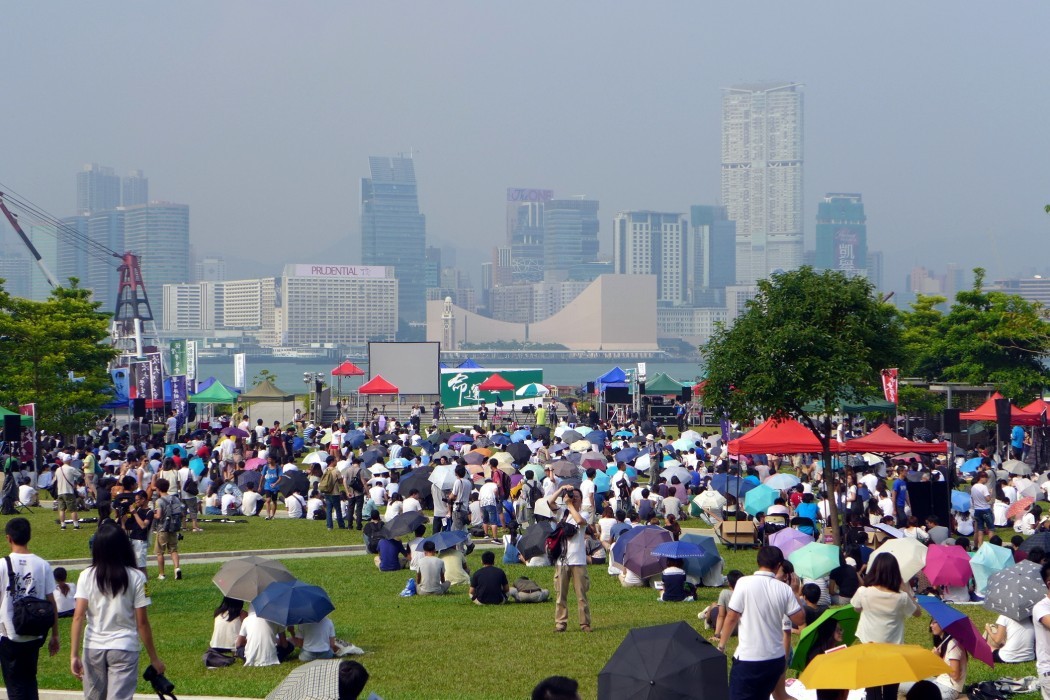At least a thousand University of Hong Kong students are expected to take part in a week-long pro-democracy class boycott next week, according to organisers.
Student leaders said the strike, set to commence next Monday, is in protest of Beijing’s conservative reform proposal for Hong Kong’s 2017 chief executive election. Yvonne Leung, organiser and president of the Hong Kong University Students’ Union, said the level of interest in the class boycott was “above average” for a demonstration on political reform.
“There will be other civil disobedience actions to follow“, she said, as the city braces itself for a series of “occupation” protests organised by pro-democracy group Occupy Central.

Alex Chow, secretary-general of the Hong Kong Federation of Students, said the class boycott represents “a starting point for a non-cooperative movement to reengage students and society as a whole”. He said that students themselves would bear most of the strike’s impact, describing it as a “self-sacrificing tactic.”
The mood on campus, however, was uncertain. Antonio Shek, undergraduate student in the department of medicine, supported the protest’s aims but said he would not be striking. “My classes are about healing people, so if I skip classes it may affect my future,” he said.
Some students remained undecided whilst others, such as undergraduate student Claire Leung, pledged only to boycott some of their classes.
“Some classes are compulsory and I have no choice because it counts towards my assessment,” said Leung. Though she will boycott some of her other law classes, she does not believe it will affect government policy. Instead, she said the purpose of the strike is to “show our attitude, show our stand and it is to fight for our own future.”
Recently, HKU’s student union increased its efforts to reach out to international students.

“Their participation can lead to [increased] media attention from foreign countries and this will help the democratisation of Hong Kong… we are sharing the same universal values”, said Yvonne Leung.
Leung denies that it is an effort to boost participation, saying the union had a constitutional responsibility to reach out to foreign students. “Our membership includes not only local but non-local students… we must include them in our activities – we’re not forcing anyone,” she said.
Isha Sengupta, an undergraduate psychology student from India, was among several international students who were unaware of the strike. “I’m not really aware of what the strikes are exactly about so I’m not going to go on strike. I don’t believe in doing something just blindly,” she said.
Bunly Soeung, a Cambodian student at the Faculty of Education, also did not know about the strike but would be barred from participating anyway. “Actually, I got a scholarship from the university and they do not allow me to get involved in any political activities at all,” Soeung said.
Students from the mainland were reluctant to voice their opinion on record. An undergraduate from Zhejiang province, who wished to remain anonymous, said “I personally won’t take part. I think the effect may be over-estimated… Those who are against it, or who aren’t going to voice out, are keeping silent.”
In an emailed statement, the University of Hong Kong said on Tuesday that it upheld personal freedom of speech, expression, assembly and association for all HKU members. “Teaching and learning activities at HKU would be held as usual”, a spokesperson said.
Chief Secretary Carrie Lam, the Secretary for Education Eddie Ng and the Education Bureau itself have all separately voiced opposition to the strike this month.

On Wednesday, Executive Council member Arthur Li Kwok-cheung said the class boycott was not constructive. Comparing students to the Cultural Revolution’s Red Guard, Li said students should make a bigger sacrifice and give up their education altogether.
In August, China’s National People’s Congress decided that Hong Kongers may elect their next leader in 2017 but candidates must be chosen by a 1,200-member committee with only two or three allowed to stand. Pro-democracy activists have called the proposal a betrayal of the “one country two systems” agreement complaining that it does not represent true universal suffrage.
